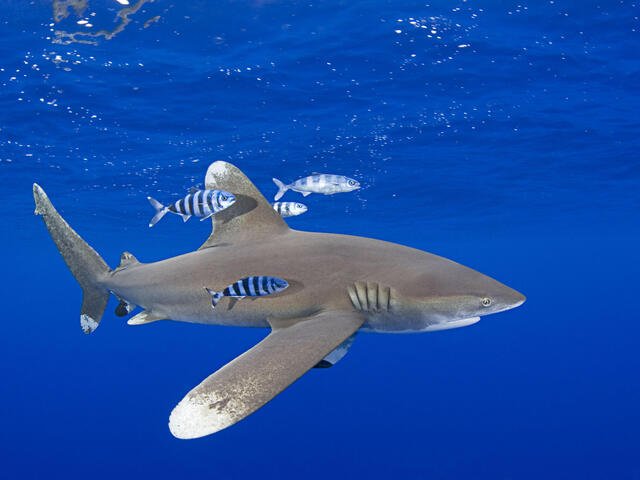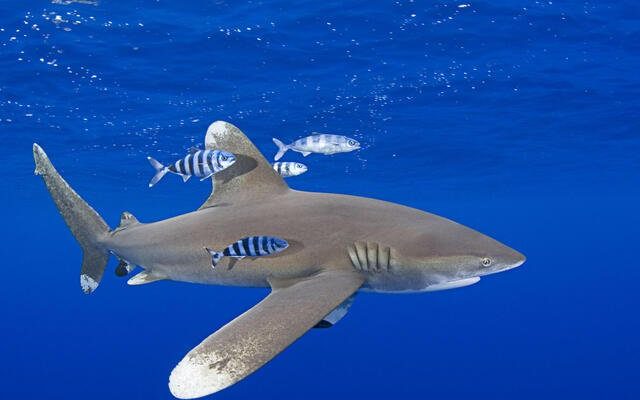
Sharks have been around for about 400 million years, which is way longer than dinosaurs! Yet, despite their resilience, they are now struggling to survive. Just like a house of cards, their environment is precariously built and can easily be toppled by human actions and environmental changes. In this article, we’ll dive into the various threats that sharks face, exploring everything from overfishing to climate change, as if we’re sifting through the ocean’s depths together.
Overfishing: The Silent Crisis
One of the most significant threats to sharks is overfishing. Picture this: fishermen out at sea, trying to catch as many fish as possible to meet demand. While it sounds like a simple way to provide food, it can lead to dire consequences for shark populations. Sharks are often caught unintentionally in nets and lines, a practice known as bycatch. This means they end up as unwanted guests in the catch bag, leading to a staggering loss of life.
To make matters worse, many shark species are slow to mature and reproduce. This means that when they’re removed from the ocean, it takes much longer for their populations to bounce back. For example, a species like the hammerhead shark can take up to 10 years to reach sexual maturity. So, just imagine the impact of losing adults to fishing nets! The numbers can dwindle in what feels like the blink of an eye, leading to a ripple effect throughout the marine ecosystem.
Shark Finning: A Cruel Trade
Another gruesome aspect of overfishing is shark finning. This practice involves catching sharks, removing their fins, and then tossing the rest of their bodies back into the ocean. Without their fins, sharks can’t swim effectively and often die from drowning, hunger, or being eaten by predators. All this is for the sake of a bowl of shark fin soup, which is considered a delicacy in some cultures.
Unfortunately, this brutal trade does not only harm individual sharks but also threatens the entire population of certain species. The whale shark, for instance, is highly sought after for its fins, yet it is a gentle giant that poses no threat to humans. By targeting these incredible creatures, we risk losing a vital part of our ocean’s biodiversity.
Habitat Destruction: A Diminishing Home
Have you ever noticed how our coastal areas seem to be evolving rapidly? Urban development, pollution, and tourism are all part of that change. But what about the habitats that sharks call home? Habitat destruction is a major threat, especially in coastal areas where mangroves and coral reefs are being destroyed to make way for buildings and roads. These environments are essential for sharks as they provide breeding grounds and protection from larger predators.
Coral reefs, often dubbed the “rainforests of the sea,” are not only stunningly beautiful but also serve as critical ecosystems supporting countless marine species. When they die off due to pollution, rising sea temperatures, or destructive fishing practices, sharks lose essential areas for feeding and breeding. This isn’t just bad news for sharks but for the entire ocean.
Climate Change: A Warming Worry
Let’s talk about climate change. It seems to be a buzzword nowadays, but its effects are very real—even for sharks. As global temperatures rise, ocean temperatures are warming too, which can lead to severe changes in shark behavior and health. Higher temperatures can alter their migratory patterns and food sources, throwing off the entire balance of the marine ecosystem. Plus, warmer waters lead to ocean acidification, making it harder for marine life to thrive, including the very fish sharks depend on.
Imagine being in a room that’s gradually getting hotter and more uncomfortable—eventually, you’d want to leave, right? Sharks might find themselves in similar situations, struggling to adapt to these changes. This means more stress on their populations and potentially less reproduction.
Pollution: A Toxic Ocean
Pollution is another insidious threat that affects sharks directly and indirectly. Our oceans are a dumping ground for all sorts of waste—from plastic bags to chemicals. Sharks, being apex predators, often accumulate toxins from the smaller fish they eat, leading to health problems over time.
When you consider how much plastic ends up in our oceans, it’s hard to ignore the impact of littering. Sharks can ingest plastic, mistaking it for prey, which can lead to choking or internal injuries. The problem doesn’t stop there; chemical runoff from land can also affect their reproductive capabilities.
Noise Pollution: The Unseen Threat
You might be surprised to hear that noise pollution is a serious issue for sharks. With the increase in boat traffic, sonar usage, and industrial activities, underwater sounds are louder than ever. Sharks rely on their acute sense of hearing to hunt and communicate. Excessive noise can disrupt these vital activities, making it harder for them to find food or mates.
Think about it: if you were trying to talk to your friend in a crowded, loud space, you’d struggle to hear them. Sharks face a similar challenge in their own environment, which adds another layer of stress to their lives.
Conservation Efforts: What Can We Do?
So, with all this going on, what can be done to help sharks? The first step is raising awareness about their plight. Understanding the challenges they face helps us advocate for policies that protect them. Organizations around the world are working hard to create marine protected areas, where sharks can thrive without the constant threats from fishing and pollution.
Additionally, supporting sustainable seafood practices can help combat overfishing. By choosing to eat seafood that is responsibly sourced, we can make a difference in maintaining healthy fish populations.
You might also consider participating in beach clean-ups or educating others. Every small action can create a wave of change, impacting shark conservation efforts. After all, sharks are not just scary creatures; they are a crucial part of our ocean’s health.
Sharks are remarkable creatures that deserve our attention and protection. The threats they face in the wild—overfishing, habitat destruction, climate change, pollution, and noise—are significant, but there is hope. By understanding these challenges, we can join forces to protect them and ensure they continue to roam our oceans. Remember, every effort counts, no matter how small. After all, preserving the future of sharks is not just about saving a species; it’s about safeguarding the entire ecosystem. Let’s work together to keep the oceans rich and vibrant for generations to come!

